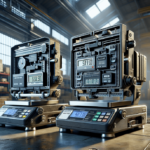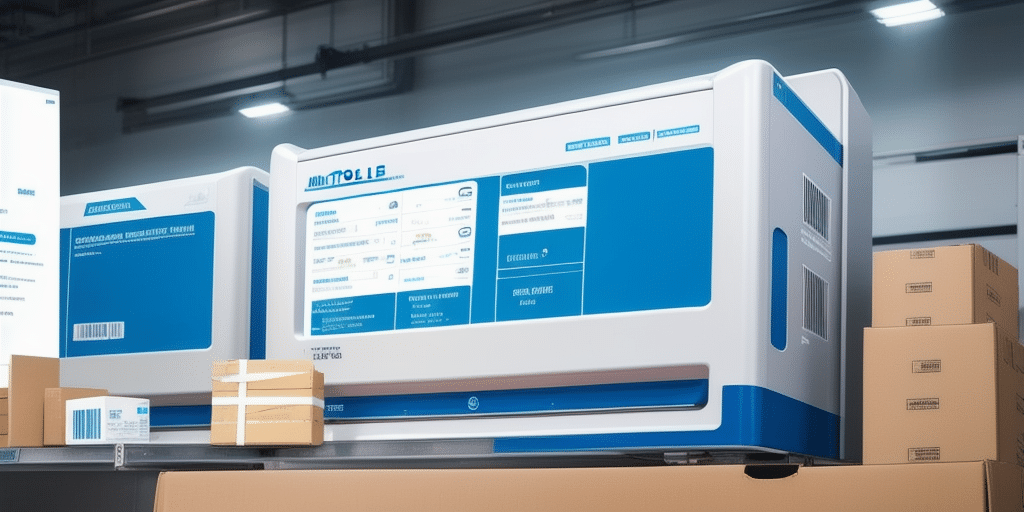Salter Brecknell LPS-400 vs Mettler Toledo BC-60: An In-Depth Comparison
Choosing the right scale is crucial for accurate measurements and efficient operations in various industries. The Salter Brecknell LPS-400 and Mettler Toledo BC-60 are two prominent scales in the market, each offering distinct features tailored to different business needs. This article provides a comprehensive comparison of these scales, examining their specifications, advantages, disadvantages, and user feedback to help you make an informed decision.
Key Differences Between Salter Brecknell LPS-400 and Mettler Toledo BC-60
Understanding the fundamental differences between the Salter Brecknell LPS-400 and Mettler Toledo BC-60 is essential for selecting the scale that best fits your business requirements. The primary distinctions lie in their capacity, accuracy, display technologies, and connectivity options.
- Capacity and Accuracy: The LPS-400 supports up to 400 lbs with an accuracy of 0.1 lb, making it suitable for lighter applications. In contrast, the BC-60 handles up to 150 lbs with higher precision at 0.05 lb, ideal for more demanding measurements.
- Display: The LPS-400 is equipped with an LCD display featuring large, easy-to-read digits, whereas the BC-60 utilizes a bright LED display that remains visible from a distance, enhancing usability in various lighting conditions.
- Connectivity: While the LPS-400 offers a USB port for basic data transfer and printing, the BC-60 includes an RS232 interface, facilitating integration with computers, printers, and barcode scanners for streamlined data management.
These differences position the BC-60 as a more robust option for industries requiring higher capacity and precision, while the LPS-400 is ideal for environments that benefit from portability and ease of use.
Salter Brecknell LPS-400: Features and Specifications
The Salter Brecknell LPS-400 is designed to deliver reliable performance with a focus on portability and user-friendliness. Key features include:
- Stainless-Steel Platform: Ensures durability and simplifies cleaning processes.
- LCD Display: A backlit screen provides clear visibility, even in low-light conditions.
- Adjustable Feet: Four adjustable feet offer stability on uneven surfaces.
- Low-Profile Design: Enhances portability and allows for space-saving placement.
- Rechargeable Battery: Provides up to 20 hours of usage on a single charge.
- Hold Function: Locks the weight reading for easy recording.
- Auto-Off Feature: Conserves battery life by automatically shutting down after periods of inactivity.
These attributes make the LPS-400 a suitable choice for small businesses, retail environments, and home use where mobility and simplicity are paramount.
Mettler Toledo BC-60: Features and Specifications
The Mettler Toledo BC-60 is engineered for heavy-duty applications, offering advanced features tailored for industrial and commercial use:
- High Capacity: Can handle up to 150 lbs, accommodating heavier materials.
- Superior Accuracy: Delivers precise measurements with an accuracy of 0.05 lb.
- LED Display: Bright and easily readable from a distance, suitable for expansive or dimly lit workspaces.
- Extended Battery Life: Lasts up to 58 hours on a full charge, minimizing downtime.
- RS232 Interface: Allows seamless connectivity with various devices for enhanced data management.
- Rugged Construction: Stainless-steel platform designed to withstand harsh and demanding environments.
- Overload Protection: Prevents damage from excessive weights, ensuring longevity.
The BC-60's robust features make it ideal for industries such as manufacturing, logistics, and food and beverage, where durability and precision are critical.
Pros and Cons of Each Scale
Salter Brecknell LPS-400
Pros:
- Portability: Lightweight and compact design facilitates easy movement.
- Battery Life: Up to 20 hours of usage on a single charge.
- Durable Platform: Stainless-steel surface is easy to clean and maintain.
- User-Friendly Interface: Clear LCD display and responsive buttons enhance usability.
- Tare Function: Enables accurate weighing of items in containers.
Cons:
- Lower Capacity and Accuracy: Limited to 400 lbs and 0.1 lb accuracy, unsuitable for heavy-duty applications.
- Durability Concerns: May not be as robust as higher-end models and could require frequent calibration.
Mettler Toledo BC-60
Pros:
- Higher Capacity and Precision: Supports up to 150 lbs with 0.05 lb accuracy.
- Extended Battery Life: Lasts up to 58 hours on a full charge.
- Durable Construction: Stainless-steel platform built for heavy use.
- Advanced Connectivity: RS232 interface allows integration with various devices.
- Overload Protection: Safeguards the scale from damage due to excessive weight.
Cons:
- Higher Cost: More expensive compared to some other scales in the market.
- Less Portability: Bulkier design makes it less ideal for applications requiring frequent movement.
- Display Visibility: LED display may be less visible in certain lighting conditions.
- Response Time: Slower response compared to some competitors, potentially affecting workflow efficiency.
User Reviews: Insights from Real Customers
Feedback from users of both the Salter Brecknell LPS-400 and Mettler Toledo BC-60 highlights their respective strengths and areas for improvement. Customers appreciate the LPS-400 for its portability and intuitive design, making it effective for small-scale operations and home use. The clear LCD display and responsive buttons are frequently praised for enhancing the user experience.
Conversely, users of the BC-60 commend its accuracy and reliability in demanding environments. The sturdy construction and extended battery life are highlighted as key advantages, particularly in industrial settings. However, some users note the higher cost and bulkier design as potential drawbacks, especially for applications requiring frequent movement or budget constraints.
Overall, both scales receive positive reviews, with the choice largely depending on the specific needs and budget of the user.
Maintenance and Care Tips for Maximizing Scale Longevity
Proper maintenance is essential to ensure the longevity and accuracy of your scale. Follow these best practices to keep your Salter Brecknell LPS-400 or Mettler Toledo BC-60 in optimal condition:
- Regular Cleaning: Clean the stainless-steel platform after each use, especially when handling dirty or oily items. Use a mild detergent and a soft cloth to avoid damaging the scale’s surface.
- Proper Storage: Store the scale in a dry, clean environment to protect it from moisture and contaminants that can affect performance.
- Routine Calibration: Calibrate your scale regularly to maintain accuracy. Refer to the manufacturer’s instructions or consult a professional technician for calibration services.
- Avoid Overloads: Do not exceed the scale’s maximum capacity to prevent damage to its components.
- Battery Maintenance: For scales with rechargeable batteries, follow recommended charging cycles to extend battery life.
- Professional Repairs: Address any signs of wear or damage promptly by seeking repairs from authorized service centers to ensure reliability.
Adhering to these maintenance practices will help preserve the functionality and accuracy of your scale, ensuring it continues to meet your business needs effectively.
Choosing the Right Scale for Your Business Needs
Selecting the appropriate scale involves evaluating several key factors that align with your business requirements. Consider the following aspects when deciding between the Salter Brecknell LPS-400 and the Mettler Toledo BC-60:
- Weight Capacity: Assess the maximum weight you need to measure. The BC-60’s 150 lbs capacity is suitable for heavier items, while the LPS-400’s 400 lbs capacity is adequate for lighter applications.
- Accuracy Requirements: Determine the level of precision needed. High-precision tasks may benefit from the BC-60’s 0.05 lb accuracy, whereas the LPS-400’s 0.1 lb accuracy suffices for general purposes.
- Portability: If your operations require frequent movement or have space constraints, the portable design of the LPS-400 is advantageous. For fixed installations, the BC-60’s robust build is preferable.
- Connectivity Needs: Consider how the scale will integrate with your existing systems. The BC-60’s RS232 interface offers advanced connectivity options for data management, while the LPS-400’s USB port provides basic data transfer capabilities.
- Budget: Balance the features you need with your budget. The LPS-400 presents a cost-effective solution for basic weighing needs, whereas the BC-60’s higher price is justified by its advanced features and durability.
- Durability and Build Quality: Invest in a scale constructed from durable materials to withstand the demands of your work environment. Both scales feature stainless-steel platforms, but the BC-60 is built for more rugged use.
- Support and Warranty: Ensure the scale comes with adequate support services and a warranty to protect your investment and provide assistance when needed.
By carefully evaluating these factors, you can select a scale that not only meets your current needs but also supports your business’s growth and operational efficiency.
The Importance of Accurate Weighing in Business Operations
Accurate weighing is pivotal in various business operations, directly impacting product quality, customer satisfaction, and regulatory compliance. Inaccurate measurements can lead to:
- Increased Costs: Overpaying for materials due to incorrect weights can affect profitability.
- Product Quality Issues: Consistent product formulations depend on precise measurements, especially in industries like pharmaceuticals and food processing.
- Shipping Errors: Misweighing packages can result in incorrect shipping costs and customer dissatisfaction.
- Regulatory Non-Compliance: Many industries have strict regulations regarding product weights and measurements. Inaccurate scales can lead to legal repercussions and loss of certifications.
Investing in a reliable and accurate scale, such as the Salter Brecknell LPS-400 or Mettler Toledo BC-60, ensures that your business maintains high standards, minimizes errors, and stays compliant with industry regulations.
Ensuring Compliance Standards with Your Scale Choice
Different industries have specific compliance standards and regulations that dictate the accuracy and reliability of weighing instruments. For example:
- Food and Beverage: Regulations require precise ingredient measurements to ensure product consistency and safety.
- Healthcare and Pharmaceuticals: Accurate dosing and formulation necessitate highly precise scales to meet health and safety standards.
- Manufacturing: Quality control processes depend on accurate weighing to maintain product specifications and reduce material waste.
- Logistics and Shipping: Accurate package weights are essential for determining shipping costs and adhering to carrier requirements.
Both the Salter Brecknell LPS-400 and the Mettler Toledo BC-60 meet various industry standards, ensuring that your business operations remain compliant. Before selecting a scale, verify that it adheres to the relevant standards and certifications required for your specific industry, such as ISO standards or FDA regulations.
Using a compliant scale not only avoids legal issues but also enhances your business’s reputation for reliability and quality, fostering trust among customers and partners.
Conclusion: Making an Informed Scale Selection
Choosing between the Salter Brecknell LPS-400 and the Mettler Toledo BC-60 requires a thorough assessment of your business’s specific needs in terms of capacity, accuracy, portability, connectivity, and budget. Both scales offer robust features tailored to different applications, ensuring that you can find a reliable solution that aligns with your operational requirements.
By considering the detailed comparisons, user reviews, and maintenance tips outlined in this article, you can confidently select the scale that will enhance your business’s efficiency, accuracy, and compliance standards.
Further Resources
For more information on selecting the right scale and understanding industry standards, refer to authoritative sources such as:








